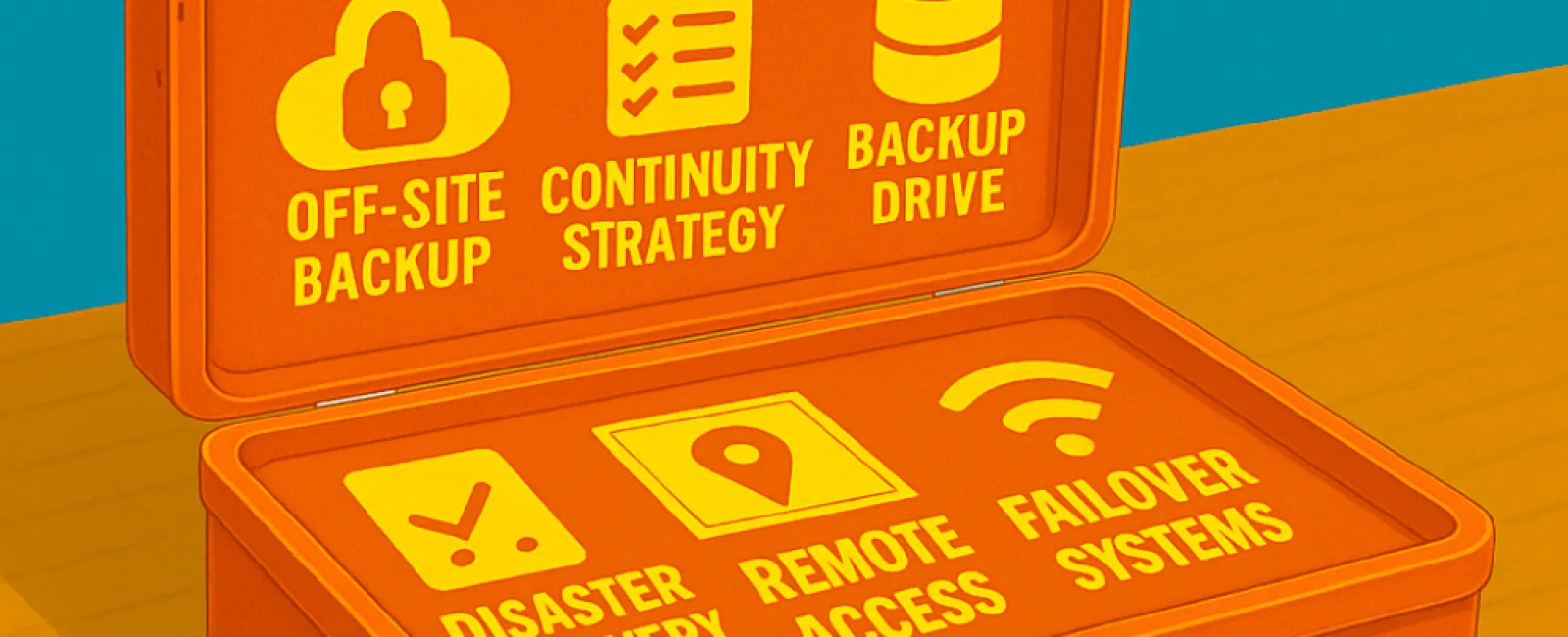July 28, 2025
Unexpected power failures, cyber threats, equipment breakdowns, and natural calamities often strike without warning, causing severe disruptions for small businesses. Many believe that simply having backups suffices, but restoring files alone doesn't guarantee business continuity. Without access to critical systems, the ability to support remote teams, or effective communication with clients and staff, even brief interruptions can escalate into prolonged setbacks. Partnering with a dependable IT provider means more than just backups—it means having a comprehensive strategy to keep your business operational through any crisis.
Backups Are Just One Piece—True Protection Comes From Continuity
It's important to understand that while backups are vital, they represent only one part of a robust defense. What your business truly needs is a business continuity plan: a forward-thinking approach designed to maintain operations during and after disruptive events.
When systems fail, files become unreachable, or your physical workspace is compromised, relying solely on local backup files is insufficient. Without a well-defined plan to swiftly resume operations, your business faces substantial risks including lost revenue, damaged reputation, and regulatory non-compliance.
Understanding the Crucial Difference: Backups vs. Business Continuity
Many organizations falter by confusing these two concepts:
● Backups focus on data restoration.
● Continuity ensures your business keeps running, regardless of obstacles.
An effective continuity plan addresses critical questions such as:
● How quickly can we bounce back?
● Where will our team work if the office is inaccessible?
● Which systems are absolutely essential?
● Who has the authority to activate the recovery procedures?
It also incorporates vital elements like:
● Encrypted, off-site, and immutable backups
● Prioritized recovery objectives (RTO/RPO)
● Preparedness for remote work
● Redundant infrastructure and failover capabilities
● Routine disaster simulation exercises
If your IT partner cannot confidently guide you through these critical components, your business isn't protected—it's just fortunate—for now.
Could This Happen to Your Business?
This isn't a scare tactic; these are real incidents with tangible impacts. Recent events include:
● Florida hurricanes forced hundreds of businesses to shut down, leaving those without cloud access completely immobilized.
● North Carolina floods destroyed local servers, wiping out months of essential records and billing information.
● California wildfires razed entire offices in the Pacific Palisades, many lacking any off-site recovery measures.
● Numerous small businesses struck by ransomware discovered their backups were corrupted or untested, amplifying the damage.
Disasters don't discriminate by company size—they happen to businesses just like yours every day.
Essential Questions You Should Be Asking Now
If disaster struck tomorrow, would your business keep running?
Ask your IT provider:
● How quickly can we recover from a ransomware attack?
● Are our backups regularly tested, and what systems do they cover?
● What's the contingency plan if a flood or fire disables our office?
● Is our continuity strategy compliant with industry standards?
● Can we continue serving clients if our team must work remotely?
If you can't answer these with complete confidence, your business may already be at risk.
Disasters Are Inevitable. Downtime Doesn't Have To Be.
You can't prevent every power outage, storm, or cyberattack, but you can control how your business responds.
A reliable IT provider helps you recover.
An exceptional one ensures your operations never miss a beat.
Curious about your business's readiness?
Click Here or call us at 608-416-2400 to schedule your FREE 10-Minute Discovery Call, and let's make sure a disaster never leads to downtime.





